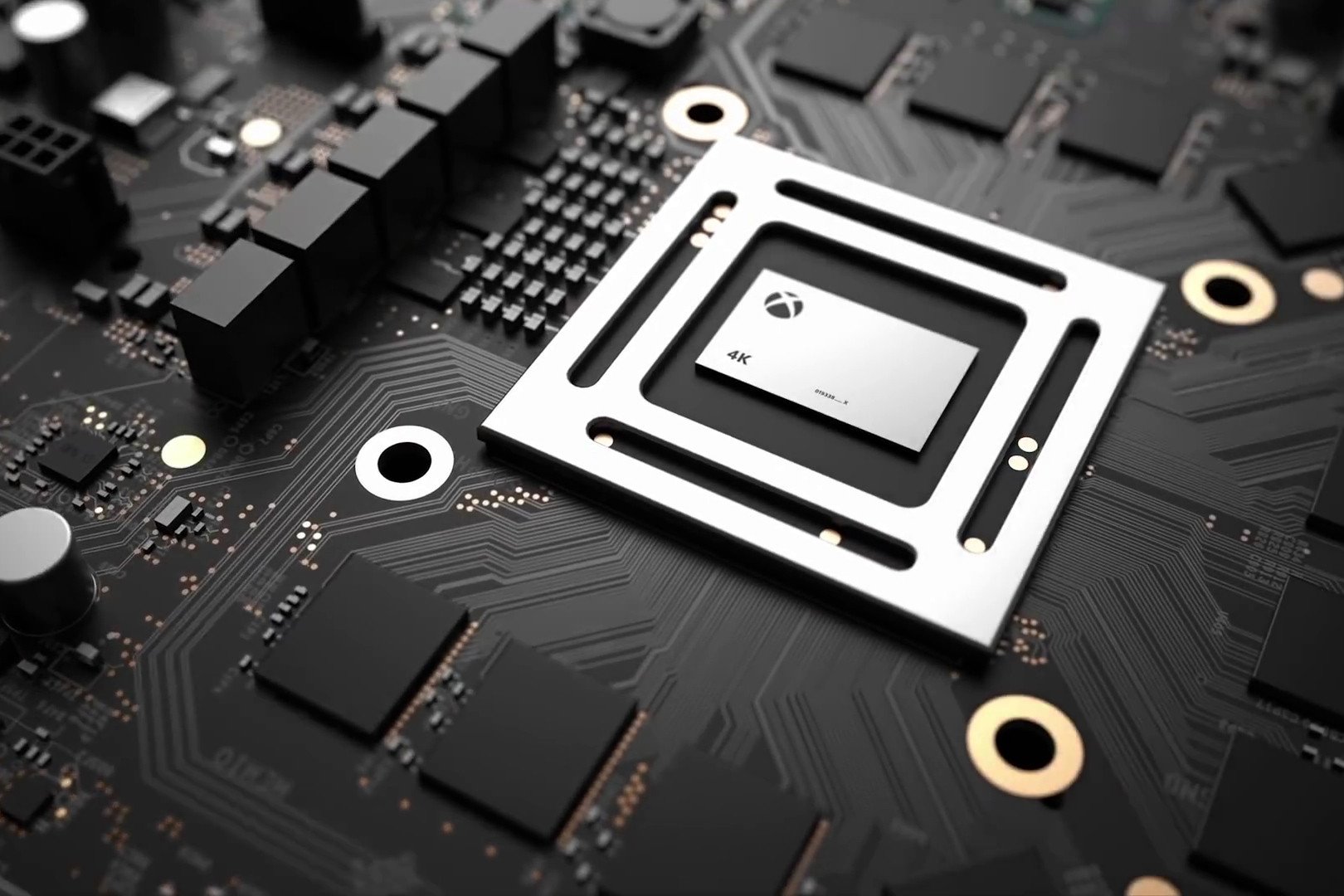Recently, Game Mode was revealed in a leaked Windows 10 Build 14997. Game Mode for Windows 10 appears to be a method for allocating resources to prioritize games when they are running, and we expect this to ship with the Creators Update this Spring.
Thanks to trusted sources, we now have more detail on what Game Mode is for, and how it will benefit developers building games for Windows 10, Xbox One, and Project Scorpio.
Update: I've removed some speculation about Game Mode helping titles like Battlefield 1 achieve a higher resolution on Xbox One. "Game Mode" is specifically a feature for Universal Windows Platform game development for games in the Windows 10 ecosystem, and shouldn't be seen as a "secret sauce" giving the Xbox One a performance boost.
In the past, we have discussed Project Helix, which is the codename for an effort by Microsoft to streamline the development chain between Xbox One, Windows 10, and the upcoming next Xbox, Project Scorpio. Project Helix will take the form of the Scorpio dev kit, which Microsoft hopes will power all Windows 10-based game development.
Game Mode, it appears, is a feature that streamlines variations between Xbox consoles and PCs, making sure as many Windows 10 systems as possible can run games to the standards set by the Xbox One and Project Scorpio. Microsoft describes those "target" standards as 900p to 1080p resolution for Xbox One and 4K resolution with 60 frames per second for Project Scorpio, and we've received evidence to suggest that the Xbox One already utilizes "Game Mode" in games developed for the Universal Windows Platform.
If our information is correct, Game Mode made its way to Xbox One dev kits in the summer of 2016, with improvements arriving in subsequent updates throughout fall and winter.
Our information states that games developed for the Windows 10, Xbox One, and Project Scorpio ecosystem specifically need to be "Game Mode enabled" Universal Windows Apps (UWA).
Previously, we were unable to ascertain whether Game Mode would be a feature restricted to games built for the Universal Windows Platform (UWP), but it does appear that this could be the case. Our information states that games developed for the Windows 10, Xbox One, and Project Scorpio ecosystem specifically need to be "Game Mode enabled" Universal Windows Apps (UWA).
This means that developers using Game Mode enabled UWP today to build games for Xbox One at 900-1080p and up to 4K for Windows 10 PCs are ready to deploy those games for Project Scorpio, with over 95% of the existing project code intact. This could explain why we're already seeing major players jump on the UWA-train, with Resident Evil 7 set for a Windows 10 Store debut on January 24th, 2017. If it is a Game Mode enabled UWA, Resident Evil 7 is ready for true 4K on Project Scorpio as a result, unpacking its 4K PC textures and settings when it installs on the console.

As a Windows 10 Store "Game mode enabled" UWA, Resident Evil 7 would be ready for a true 4K Project Scorpio debut.
It certainly looks as though Microsoft is making a big push into Windows 10 Store gaming with Project Scorpio, leveraging the Xbox ecosystem and the Windows 10 install base as a means to allow gamers to truly play anywhere. Whether it's on consoles, PCs, or with Windows 10 on ARM, maybe even future mobile devices.
Whether or not developers will buy into this vision is another matter entirely. Call of Duty: Infinite Warfare is available as a UWA on the Windows 10 Store, but it's segregated from all other versions, becoming practically useless for anything other than its campaign. Also, how many of us will really be willing to buy Resident Evil 7 twice to take advantage of Xbox save syncing between the Windows 10 and console versions of the game, considering the game doesn't look like it will support Xbox Play Anywhere? And there's the matter of the Windows 10 Store being an unpleasant experience in general, crammed with shovelware.
Games like Gears of War 4, Astroneer, Halo Wars Definitive Edition, and Killer Instinct are a joy for cross-platform play and purchasing, but convincing major players to sacrifice sales of multiple versions of their games may prove to be an uphill battle. We'll have to wait and see just how many publishers jump on board.






No comments:
Post a Comment